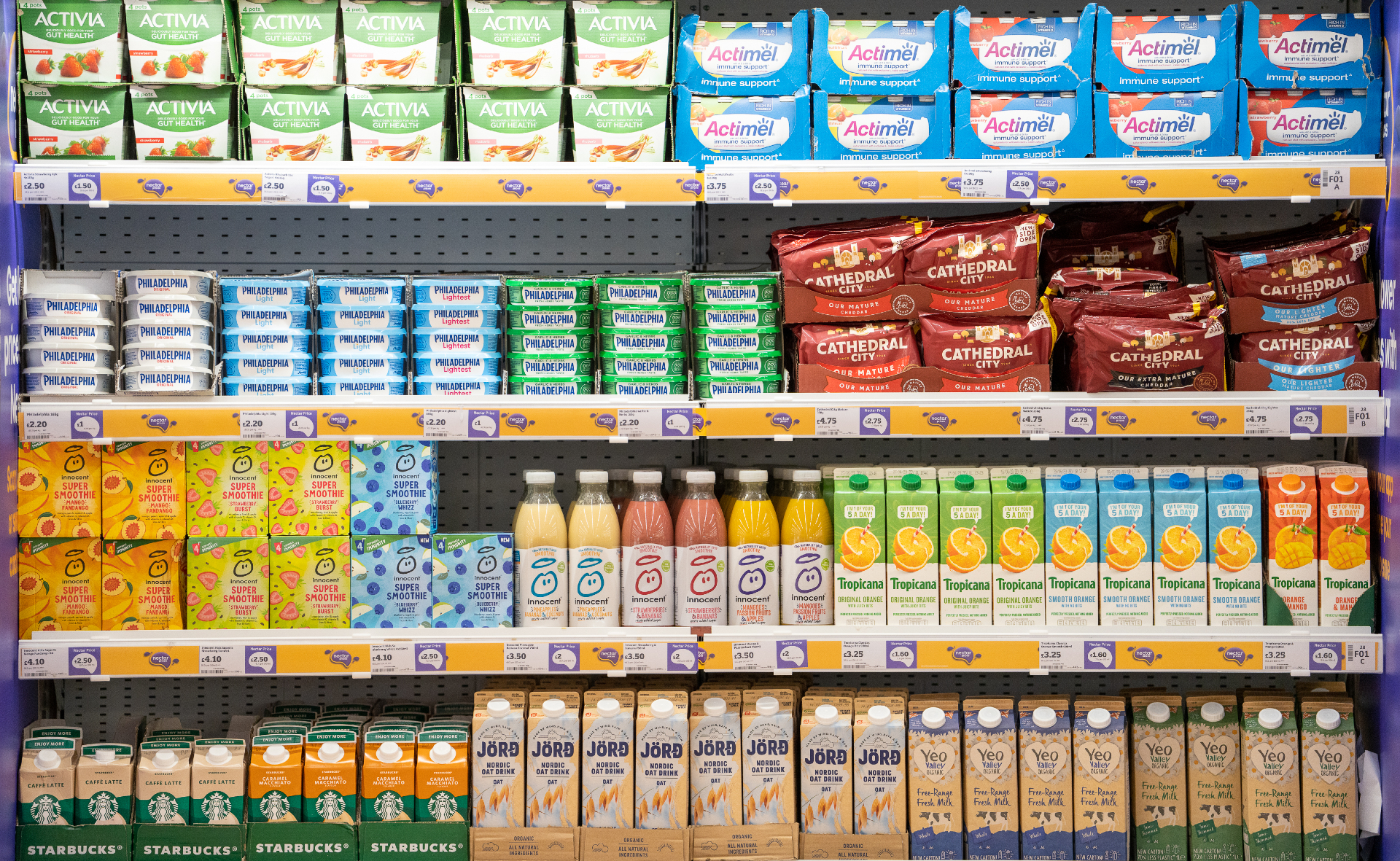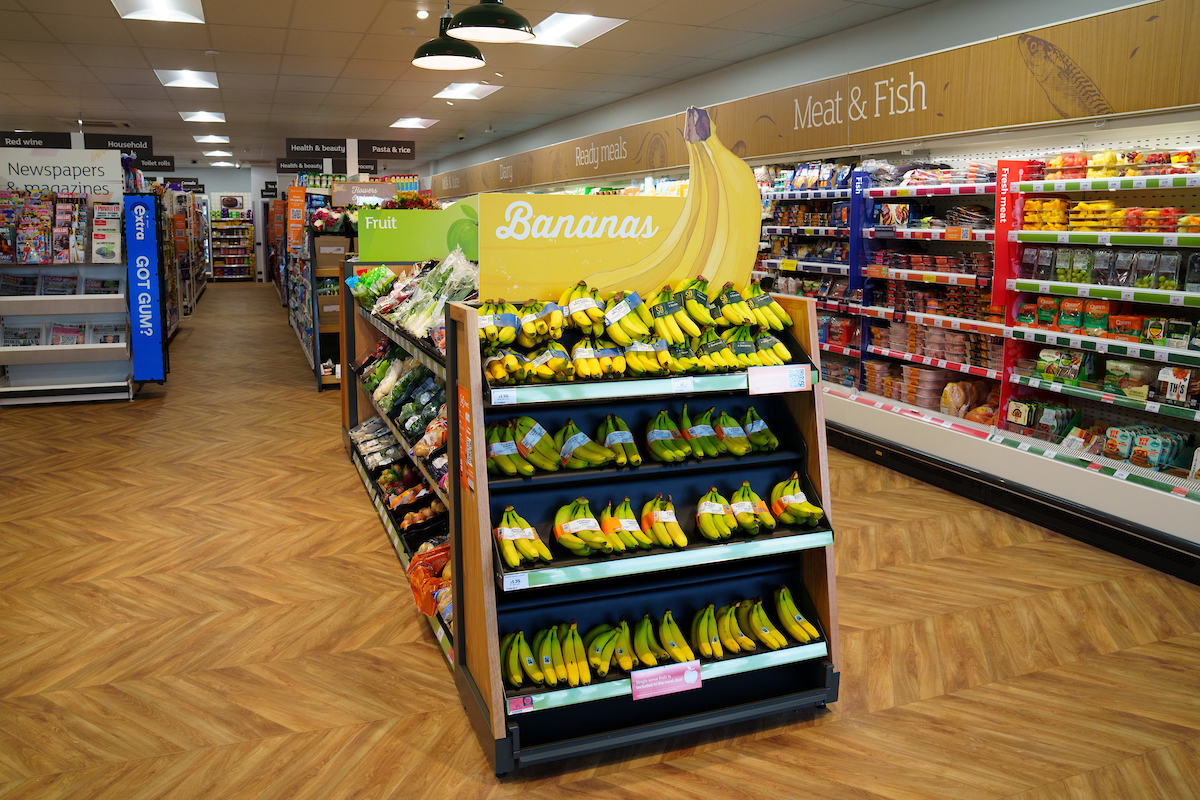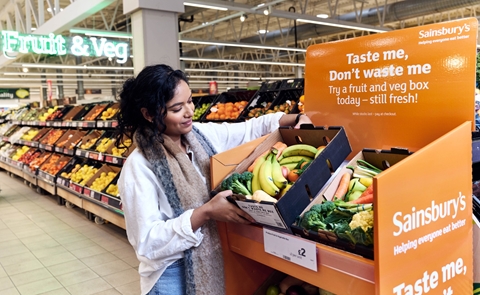15 July 2024
Lobbying for Good: Why we need to see a fresh approach for a resilient food future

In our first Lobbying for Good blog since the general election, Nilani Sritharan, Head of Healthy and Sustainable Diets at Sainsbury’s, outlines what support they need from the new Government to help drive more customers towards healthy & sustainable diets.
“Helping our customers to feed their families healthy, nutritional and affordable food is at the heart of everything we do. We have a commitment to increase healthier sales but we know that to succeed in this, we cannot operate alone.” Nilani says.
“We want to work alongside the new Labour Government, progressive food businesses, investors and NGO’s to co-create effective policy that helps customers change what they eat. We believe that the whole food sector should play its part and the Government has a role to play in levelling the playing field for the food sector. The system must also reward businesses that lead change and not put them at a commercial disadvantage.”
Sainsbury’s would like to see the Government prioritise:
- A consistent health policy agenda
- An agreed definition of a more sustainable choice
- Mandate health disclosures
- Greater rewards for businesses doing the right thing
- Safeguarding food funds for vulnerable groups
Taking each of these in turn:
1. A consistent plan for health
Consistency in delivering health policies provides clarity for business and informs long-term innovation and reformulation strategies, which are often planned three-five years ahead.
Taking regulatory action to address the balance of unhealthy sales will be a key part of this plan as it helps level the playing field across businesses in areas where there is no commercial advantage. Sainsbury’s ceased running HFSS multibuys back in 2016 but holding onto this position in the absence of regulation has put us at a commercial disadvantage in a highly competitive market. We therefore call on the Government to push forward with implementing the HFSS advertising restrictions and the much-delayed restrictions for HFSS multibuys.

2. Define a ‘greener’ choice
Selecting a more sustainable food choice shouldn’t require an encyclopaedia. But as a sector, we lack agreement on a ‘better choice’. Businesses need clarity on this definition to demonstrate sustainability improvements, direct action among their suppliers and support like for like comparisons with competitors. At farm level, producers need consistency in the asks from all retailers on how we seek to deliver ‘more sustainable’ foods.
Any definition must reflect the limitations of the data we have today. We need to stimulate innovation and reward businesses who are committed to that journey – given that there is often cost or capital investment involved in such improvements – through small incremental changes that balances pragmatism with the risks of greenwashing.
A common sector definition and clear claim frameworks that define comparative claims will allow us to plan, innovate and nudge customers and suppliers towards those better choices.
3. Mandate disclosures on healthy sales
It may sound simple, but better data on the healthiness, ‘sustainability’ and customer demand for products has the potential to revolutionise the UK food system.
Disclosing business performance against health and sustainability metrics – including total sales – forces business to prioritise the data infrastructure and systems that unlock insight into what’s driving better sales.
Mandatory action is required for the whole sector to come to the table and align on a common set of metrics for both health and eco performance measures. The Food Data Transparency Partnership (FDTP) is an example of industry and Government collaborating on action towards this. The FDTP was paused due to the elections but continuation of this approach is critical if businesses are to agree sector-wide metrics by 2025.
4. Reward leading businesses with incentives
As one example, HMRC offers tax rebates to businesses investing in research and development. Sadly, that definition of ‘R&D’ is pretty outdated – meaning the benefit is often limited to the pharmaceutical sector.
Food business investing in forms of research – such as food environment trials or testing regenerative agriculture systems (which often involve capital expenditure) – are not recognised in this tax definition. Equally, there are no financial subsidies for the private sector’s involvement in UKRI-funded projects, even among grants which seek to stimulate academic and industrial engagement. So, investment here becomes challenging for the retail sector which has margins of just 2-3%.
Yet, we need to know what works for increasing sales of healthy and sustainable foods. We need businesses to evaluate and share the outcomes from their trials so that we can accelerate the transition to healthier and more sustainable baskets and better inform Government policy. A simple revision of this definition can be an easy way to help reward and incentivise businesses making these investments.

5. Safeguard welfare budgets for healthy diets
As a developed nation, it is unthinkable to imagine that a child born into our society may not enjoy the right to enjoy nutritious food.
The Healthy Start Voucher was developed to help pregnant women and children <2y from very low incomes access funds restricted to the purchase of fruit, veg and milk.
Our work to top up the Healthy Start Vouchers with an additional £2 weekly voucher, over six weeks, was shown by the University of Leeds, to help increase portions of fruit and veg by an average 13 more portions. It is one example of the importance of helping vulnerable families to safeguard funds towards healthy diets. We therefore welcome efforts to improve this benefit, among other lifeline mechanisms such as free school meals and holiday activity funds. For example by:
- Removing the red tape for applications by making this an opt out benefit as part of Universal Credit and
- lifting the maximum £20,000/y threshold for entitlement, ensuring more vulnerable households can benefit. Latest figures show that uptake of the current programme is at just 62% among entitled families due to the sheer complexity of the application process today.

We have a real opportunity to think differently and work collaboratively to tackle today’s food system challenges. These five asks will help support business and society in our transition towards healthier and more sustainable diets; rewarding and recognising businesses that lead, improving transparency, supporting research and innovation and inspiring more businesses into progressive action.

About Lobbying For Good
A growing number of food companies and investors want Government to take a more proactive role in helping them deliver on their health and sustainability strategies. As a new Government takes office, it's important to give those businesses and investors a platform and help to amplify their asks of policymakers.
In this blog series, we aim to highlight progressive voices within the food industry who - at the time of interview - we've identified as being leaders on specific areas within health and sustainability. We ask them what their vision is for a healthy and sustainable food system post-election and what specific actions the new Government should take in its first 100 days.
We hope their commitment to creating a fairer and more sustainable food system will continue into the future and that these blogs will inspire other business leaders to add their voices to the call for the new Government to regulate for positive change.


Chloe joined the team in August 2020 as Global Food Systems Project Manager, leading on The Food Foundation’s international work in the run up to the UK hosting COP26 and the UN Food Systems Summit. She is now the Business Engagement Manager, working with food businesses to encourage them to improve the healthy and sustainability of their portfolios. Before joining us, Chloe worked for the National Trust within the External Affairs team. During her time there she set up a knowledge sharing network for climate change professionals called 'Fit for the Future'. She also spent a year managing an organic farm and sustainability centre.





